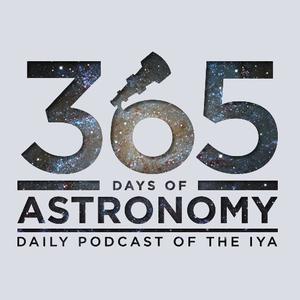
The 365 Days of Astronomy
365DaysOfAstronomy.org
- 38 minutes 20 secondsActual Astronomy - The Observer’s Calendar
Hosted by Chris Beckett & Shane Ludtke, two amateur astronomers in Saskatchewan. [email protected]
This month is our Observer’s Calendar for January 2025 but I’ve had Marie Newnham working with me on the RASC Observer’s Colander and she came up with a. Variety of new targets I’ll start adding but have never seen for myself.
Jan 5- Neptune 1.1 S of Moon - Occultation for Central and North EU
Jan 6 - First Quarter Moon and Walthier Sunrise Ray visible on Moon
Jan 7 - Lunar Straight Wall visible and “Eyes of Clavius” on the Moon
Jan 8/9 - Uranus 4° S of Moon
Jan 11 - “Wargentin Pancake” visible on Moon
Jan 12 - Mars at Closest Approach - Carbon star T Cnc best tonight
Jan 13 - Full Moon - Mars 0.2° S of Moon - Occultation for NA 9pm EST
Jan 14 - Follow Arcturus into the daytime sky
Jan 15 - Mars at Opposition
Jan 17 - Saturn and Venus 3° apart
Jan 19 - Venus 3° N of Saturn
Jan 21 - Last Quarter Moon
Jan 25 - Mare Orientale visible on Moon
Jan 31 - Saturn 1.1° South of Moon
We've added a new way to donate to 365 Days of Astronomy to support editing, hosting, and production costs.
Just visit: https://www.patreon.com/365DaysOfAstronomy and donate as much as you can!
Share the podcast with your friends and send the Patreon link to them too!
Every bit helps! Thank you!
------------------------------------
Do go visit http://www.redbubble.com/people/CosmoQuestX/shop for cool Astronomy Cast and CosmoQuest t-shirts, coffee mugs and other awesomeness!
http://cosmoquest.org/Donate This show is made possible through your donations.
Thank you! (Haven't donated? It's not too late! Just click!)
------------------------------------
The 365 Days of Astronomy Podcast is produced by the Planetary Science Institute. http://www.psi.edu
Visit us on the web at 365DaysOfAstronomy.org or email us at [email protected].
2 January 2025, 12:00 pm - 14 minutes 3 secondsCheap Astronomy - Dear CA #114: Making Sense of Complexity
Hosted by Steve Nerlich.
Dear Cheap Astronomy – Why do further way galaxies moving faster mean the Universe is expanding?
It is all a lot to take in – not only is farther away stuff moving faster, also the Universe is expanding faster now than it was in the past and there’s standard candles and red-shift and much room for confusion.
Dear Cheap Astronomy – Is there such a thing as a dead planet?
To start with it’s probably unreasonably biocentric to define spherical objects that orbit the Sun and have cleared their orbits, as either alive or dead. We can redefine the question in terms of being geologically-active or not, but there it gets difficult to draw a line between what’s active and what isn’t.
We've added a new way to donate to 365 Days of Astronomy to support editing, hosting, and production costs.
Just visit: https://www.patreon.com/365DaysOfAstronomy and donate as much as you can!
Share the podcast with your friends and send the Patreon link to them too!
Every bit helps! Thank you!
------------------------------------
Do go visit http://www.redbubble.com/people/CosmoQuestX/shop for cool Astronomy Cast and CosmoQuest t-shirts, coffee mugs and other awesomeness!
http://cosmoquest.org/Donate This show is made possible through your donations.
Thank you! (Haven't donated? It's not too late! Just click!)
------------------------------------
The 365 Days of Astronomy Podcast is produced by the Planetary Science Institute. http://www.psi.edu
Visit us on the web at 365DaysOfAstronomy.org or email us at [email protected].
1 January 2025, 12:00 pm - 7 minutes 9 secondsUNAWE Space Scoop - Tune in to the Exoplanetary Radio
Astronomers think that studying the effects of spaceweather and radiation in space will shed more light on exoplanetary atmospheres. You see, spaceweather is what we call the variations in the space environment.
Here in our solar system we experience spaceweather as solar wind, solar flares, solar storms, coronal mass ejections from the Sun and even cosmic rays from the rest of the Universe.
Did you see the aurora borealis this year?
That’s spaceweather!
Want to know more?
You can visit https://www.spaceweather.com and https://www.swpc.noaa.gov.
We've added a new way to donate to 365 Days of Astronomy to support editing, hosting, and production costs.
Just visit: https://www.patreon.com/365DaysOfAstronomy and donate as much as you can!
Share the podcast with your friends and send the Patreon link to them too!
Every bit helps! Thank you!
------------------------------------
Do go visit http://www.redbubble.com/people/CosmoQuestX/shop for cool Astronomy Cast and CosmoQuest t-shirts, coffee mugs and other awesomeness!
http://cosmoquest.org/Donate This show is made possible through your donations.
Thank you! (Haven't donated? It's not too late! Just click!)
------------------------------------
The 365 Days of Astronomy Podcast is produced by the Planetary Science Institute. http://www.psi.edu
Visit us on the web at 365DaysOfAstronomy.org or email us at [email protected].
31 December 2024, 12:00 pm - 24 minutes 27 secondsAstronomy Cast Ep. 17: Where Does the Moon Come From?
http://www.astronomycast.com/archive/
From January 1, 2007.
We take the Moon for granted, but its effect on the Earth is very important; possibly even critical for the formation of life. But where did it come from? Did the Earth and Moon form together? Or did the Earth capture a wayward Moon? Or was there a more catastrophic cause to this lunar mystery?
We've added a new way to donate to 365 Days of Astronomy to support editing, hosting, and production costs.
Just visit: https://www.patreon.com/365DaysOfAstronomy and donate as much as you can!
Share the podcast with your friends and send the Patreon link to them too!
Every bit helps! Thank you!
------------------------------------
Do go visit http://www.redbubble.com/people/CosmoQuestX/shop for cool Astronomy Cast and CosmoQuest t-shirts, coffee mugs and other awesomeness!
http://cosmoquest.org/Donate This show is made possible through your donations.
Thank you! (Haven't donated? It's not too late! Just click!)
------------------------------------
The 365 Days of Astronomy Podcast is produced by the Planetary Science Institute. http://www.psi.edu
Visit us on the web at 365DaysOfAstronomy.org or email us at [email protected].
30 December 2024, 12:00 pm - 5 minutes 30 secondsTravelers in the Night Eps. 771 & 772: Nice PHA & M31, Our Neighbor’s Surprise
Dr. Al Grauer hosts. Dr. Albert D. Grauer ( @Nmcanopus ) is an observational asteroid hunting astronomer. Dr. Grauer retired from the University of Arkansas at Little Rock in 2006. travelersinthenight.org
Today's 2 topics:
- NASA classifies 2023 SZ1 as a Potentially Hazardous Asteroid since it is larger than 140m in diameter and on its current path can come to about 6 times the Moon’s distance from us.Fortunately on its current path 2023 SZ1 will not come any closer than 42 times the Moon’s distance from us until after 2171.
- Marcel Drechsler, Xavier Strottner, and Yann Sainty’s image of our neighboring galaxy, M31, in Andromeda won the 10,000 British pound Astronomer Photographer of the year award for 2023. Amazingly their image revealed a huge, previously unknown arc of hot doubly ionized Oxygen gas.
We've added a new way to donate to 365 Days of Astronomy to support editing, hosting, and production costs.
Just visit: https://www.patreon.com/365DaysOfAstronomy and donate as much as you can!
Share the podcast with your friends and send the Patreon link to them too!
Every bit helps! Thank you!
------------------------------------
Do go visit http://www.redbubble.com/people/CosmoQuestX/shop for cool Astronomy Cast and CosmoQuest t-shirts, coffee mugs and other awesomeness!
http://cosmoquest.org/Donate This show is made possible through your donations.
Thank you! (Haven't donated? It's not too late! Just click!)
------------------------------------
The 365 Days of Astronomy Podcast is produced by the Planetary Science Institute. http://www.psi.edu
Visit us on the web at 365DaysOfAstronomy.org or email us at [email protected].
29 December 2024, 12:00 pm - 35 minutes 46 secondsThe Cosmic Savannah - Ep. 64: Bursts From Space
In this episode, Tshiamiso and Dan have a discussion with Alexander Andersson from Oxford University about Zooniverse, citizen science projects and how citizens can contribute to the work that astronomers do.
During the episode Alex discusses how important and useful the work done by participants in the Bursts from Space project is for helping scientists train AI in the search for radio transients – or as Alex puts it: “Things that go bump in the night”.
Join us for another exciting episode and learn how you can contribute to the fascinating research going on in Astronomy today!
Alexander Andersson is a PhD student at Oxford University in the United Kingdom. His work focuses on Machine Learning applications to data collected by the MeerKAT telescope. Alex is also involved with the Zooniverse citizen science project. Specifically, Alex is working on the Bursts from Space project using the Zooniverse platform in order to train AI to identify radio transients.
We've added a new way to donate to 365 Days of Astronomy to support editing, hosting, and production costs.
Just visit: https://www.patreon.com/365DaysOfAstronomy and donate as much as you can!
Share the podcast with your friends and send the Patreon link to them too!
Every bit helps! Thank you!
------------------------------------
Do go visit http://www.redbubble.com/people/CosmoQuestX/shop for cool Astronomy Cast and CosmoQuest t-shirts, coffee mugs and other awesomeness!
http://cosmoquest.org/Donate This show is made possible through your donations.
Thank you! (Haven't donated? It's not too late! Just click!)
------------------------------------
The 365 Days of Astronomy Podcast is produced by the Planetary Science Institute. http://www.psi.edu
Visit us on the web at 365DaysOfAstronomy.org or email us at [email protected].
28 December 2024, 12:00 pm - 20 minutes 22 secondsEVSN - Impact Gardening Churns Surface of Saturn’s Moon Europa
From July 17, 2021.
Over tens of millions of years, the surface of Europa has been churned by impacts down to an average depth of 30 centimeters. This churning means that the search for chemical biosignatures must look below that zone. Plus, methane and icequakes at Enceladus, predicting underwater eruptions, Virgin Galactic's flight, and a Chinese spacewalk.
We've added a new way to donate to 365 Days of Astronomy to support editing, hosting, and production costs.
Just visit: https://www.patreon.com/365DaysOfAstronomy and donate as much as you can!
Share the podcast with your friends and send the Patreon link to them too!
Every bit helps! Thank you!
------------------------------------
Do go visit http://www.redbubble.com/people/CosmoQuestX/shop for cool Astronomy Cast and CosmoQuest t-shirts, coffee mugs and other awesomeness!
http://cosmoquest.org/Donate This show is made possible through your donations.
Thank you! (Haven't donated? It's not too late! Just click!)
------------------------------------
The 365 Days of Astronomy Podcast is produced by the Planetary Science Institute. http://www.psi.edu
Visit us on the web at 365DaysOfAstronomy.org or email us at [email protected].
27 December 2024, 12:00 pm - 29 minutes 13 secondsH’ad Astra Historia - Ep. 108: Put a Ring On It
Hosted by Loretta Cannon for the AAS-HAD.
Historical Astronomy Division of AAS
Today’s guest: Dr. Linda Spilker (JPL Fellow and Senior Research Scientist) discusses the Cassini mission to Saturn (1997-2017) that she worked with for 30 years, the last 10 as Project Scientist.
H’ad astra historia is the official podcast for the Historical Astronomy Division of the American Astronomical Society. We’re here to share stories from and about the people who study the stars, planets, and the cosmos. We’ll be hearing from individuals who not only study the history of astronomy, but also those who lived it, who were “in the room” during pivotal events within the last 50 years or so.
Loretta Cannon (an AAS affiliate via Rose City Astronomers) is a science-and-word-nerd who really likes the stars. She quite enjoys working as HAD’s podcaster, bringing astronomy stories to you.
We've added a new way to donate to 365 Days of Astronomy to support editing, hosting, and production costs.
Just visit: https://www.patreon.com/365DaysOfAstronomy and donate as much as you can!
Share the podcast with your friends and send the Patreon link to them too!
Every bit helps! Thank you!
------------------------------------
Do go visit http://www.redbubble.com/people/CosmoQuestX/shop for cool Astronomy Cast and CosmoQuest t-shirts, coffee mugs and other awesomeness!
http://cosmoquest.org/Donate This show is made possible through your donations.
Thank you! (Haven't donated? It's not too late! Just click!)
------------------------------------
The 365 Days of Astronomy Podcast is produced by the Planetary Science Institute. http://www.psi.edu
Visit us on the web at 365DaysOfAstronomy.org or email us at [email protected].
26 December 2024, 12:00 pm - 6 minutes 46 secondsPamela Gay - ’Twas The Observer’s Day Before Christmas
Hosted by Dr. Pamela Gay.
Description: Pamela tells a Christmas tale for astronomers one and all. With apologies to Clement Clarke Moore.
Bio: Dr. Pamela L. Gay is co-host of the popular AstronomyCast podcast. Additionally, she created Astrosphere New Media Association, a nonprofit organization that promotes science through internet based technologies, in order to keep many of the IYA projects alive.
We've added a new way to donate to 365 Days of Astronomy to support editing, hosting, and production costs.
Just visit: https://www.patreon.com/365DaysOfAstronomy and donate as much as you can!
Share the podcast with your friends and send the Patreon link to them too!
Every bit helps! Thank you!
------------------------------------
Do go visit http://www.redbubble.com/people/CosmoQuestX/shop for cool Astronomy Cast and CosmoQuest t-shirts, coffee mugs and other awesomeness!
http://cosmoquest.org/Donate This show is made possible through your donations.
Thank you! (Haven't donated? It's not too late! Just click!)
------------------------------------
The 365 Days of Astronomy Podcast is produced by the Planetary Science Institute. http://www.psi.edu
Visit us on the web at 365DaysOfAstronomy.org or email us at [email protected].
25 December 2024, 12:00 pm - 6 minutes 18 secondsExoplanet Radio - Ep. 31: Astronomers Confirm Proxima Centauri b is Not A Transit Exoplanet
From September 6, 2023.
Hosted by Tony Darnell.
Astronomers have recently concluded an observation study of the closest exoplanet to Earth, Proxima Centauri b and found that the planet does not transit its star. These observations settle a question that astronomers have been asking since the exoplanet's discovery in 2016 using the radial velocity method.
We've added a new way to donate to 365 Days of Astronomy to support editing, hosting, and production costs.
Just visit: https://www.patreon.com/365DaysOfAstronomy and donate as much as you can!
Share the podcast with your friends and send the Patreon link to them too!
Every bit helps! Thank you!
------------------------------------
Do go visit http://www.redbubble.com/people/CosmoQuestX/shop for cool Astronomy Cast and CosmoQuest t-shirts, coffee mugs and other awesomeness!
http://cosmoquest.org/Donate This show is made possible through your donations.
Thank you! (Haven't donated? It's not too late! Just click!)
------------------------------------
The 365 Days of Astronomy Podcast is produced by the Planetary Science Institute. http://www.psi.edu
Visit us on the web at 365DaysOfAstronomy.org or email us at [email protected].
24 December 2024, 12:00 pm - 28 minutes 10 secondsAstronomy Cast Ep. 738: Looking Ahead to 2025
https://www.youtube.com/watch?v=ot1o31zqF8s
Streamed live on Dec 16, 2024.
What can we hope (or dread) to see in 2025?
Last week we talked about the 2024 strangeness. Now we’re gonna talk about the upcoming space stories for 2025 that we’re looking forward to. It’s a nice mix of new rockets, new missions and new fly-bys.
Hosted by: Fraser Cain and Dr. Pamela L. Gay
SUPPORTED BY YOU!
This Episode is made possible thanks to our Patrons on Patreon. Join at the Galaxy Group level or higher to be listed in our YouTube videos https://www.patreon.com/AstronomyCast
Thanks to: Andrew Poelstra, BogieNet, Brian Cagle, David, David Truog, Ed, Gerhard, Schwarzer, Jeanette Wink, Siggi Kemmler, Stephen Veit
We've added a new way to donate to 365 Days of Astronomy to support editing, hosting, and production costs.
Just visit: https://www.patreon.com/365DaysOfAstronomy and donate as much as you can!
Share the podcast with your friends and send the Patreon link to them too!
Every bit helps! Thank you!
------------------------------------
Do go visit http://www.redbubble.com/people/CosmoQuestX/shop for cool Astronomy Cast and CosmoQuest t-shirts, coffee mugs and other awesomeness!
http://cosmoquest.org/Donate This show is made possible through your donations.
Thank you! (Haven't donated? It's not too late! Just click!)
------------------------------------
The 365 Days of Astronomy Podcast is produced by the Planetary Science Institute. http://www.psi.edu
Visit us on the web at 365DaysOfAstronomy.org or email us at [email protected].
23 December 2024, 12:00 pm - More Episodes? Get the App
Your feedback is valuable to us. Should you encounter any bugs, glitches, lack of functionality or other problems, please email us on [email protected] or join Moon.FM Telegram Group where you can talk directly to the dev team who are happy to answer any queries.
 Space Nuts
Space Nuts
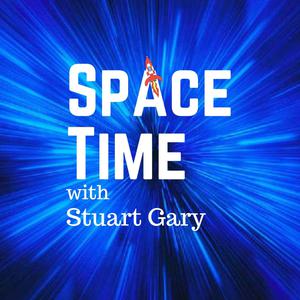 SpaceTime with Stuart Gary
SpaceTime with Stuart Gary
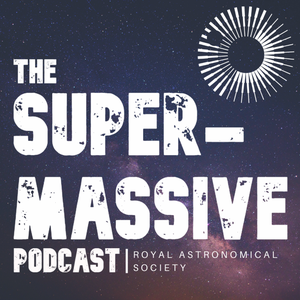 The Supermassive Podcast
The Supermassive Podcast
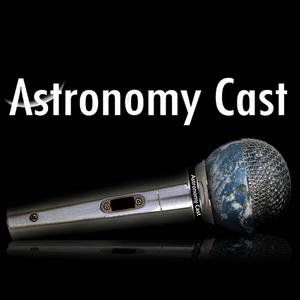 Astronomy Cast
Astronomy Cast
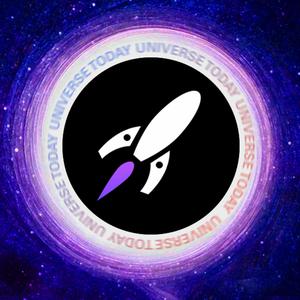 Universe Today Podcast
Universe Today Podcast
 Ask a Spaceman!
Ask a Spaceman!